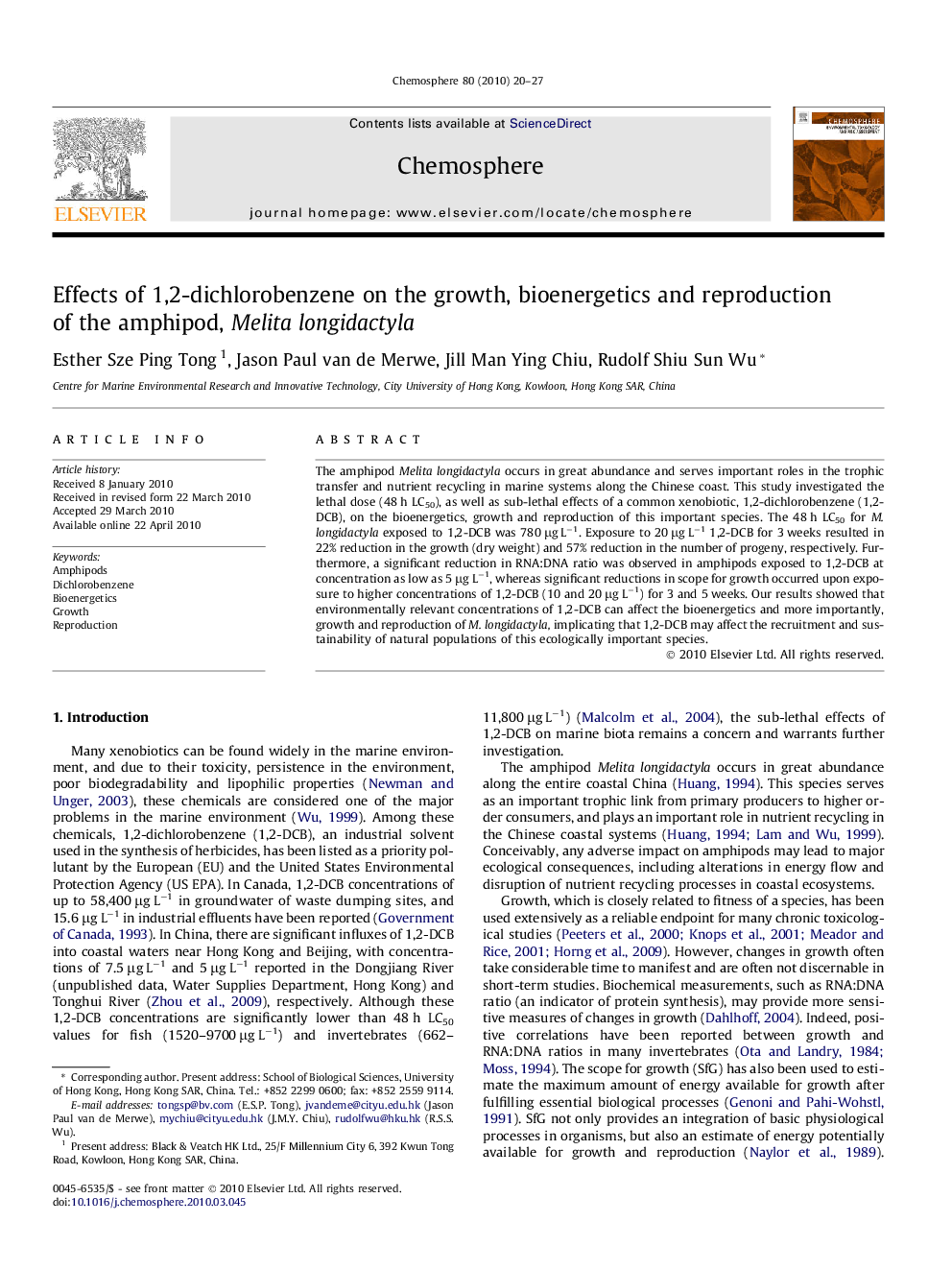| Article ID | Journal | Published Year | Pages | File Type |
|---|---|---|---|---|
| 4411543 | Chemosphere | 2010 | 8 Pages |
The amphipod Melita longidactyla occurs in great abundance and serves important roles in the trophic transfer and nutrient recycling in marine systems along the Chinese coast. This study investigated the lethal dose (48 h LC50), as well as sub-lethal effects of a common xenobiotic, 1,2-dichlorobenzene (1,2-DCB), on the bioenergetics, growth and reproduction of this important species. The 48 h LC50 for M. longidactyla exposed to 1,2-DCB was 780 μg L−1. Exposure to 20 μg L−1 1,2-DCB for 3 weeks resulted in 22% reduction in the growth (dry weight) and 57% reduction in the number of progeny, respectively. Furthermore, a significant reduction in RNA:DNA ratio was observed in amphipods exposed to 1,2-DCB at concentration as low as 5 μg L−1, whereas significant reductions in scope for growth occurred upon exposure to higher concentrations of 1,2-DCB (10 and 20 μg L−1) for 3 and 5 weeks. Our results showed that environmentally relevant concentrations of 1,2-DCB can affect the bioenergetics and more importantly, growth and reproduction of M. longidactyla, implicating that 1,2-DCB may affect the recruitment and sustainability of natural populations of this ecologically important species.
